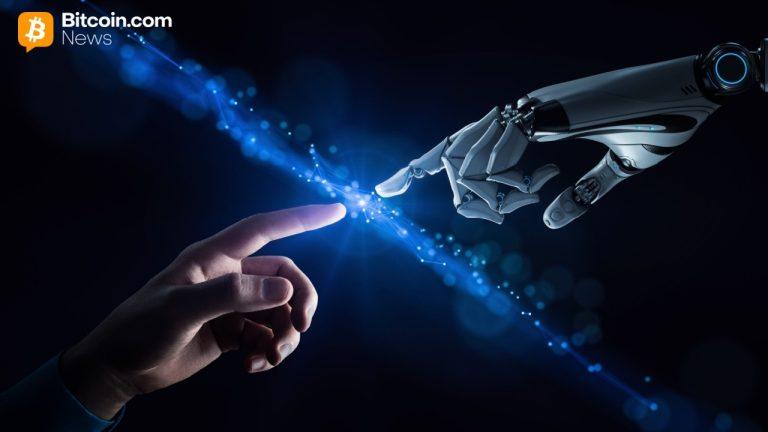Decentralized AI: A Pathway to a Post-Scarcity Future
0G Labs CEO Michael Heinrich discusses how decentralized AI could lead to a post-scarcity society, freeing individuals to pursue creativity.

The conversation around artificial intelligence (AI) has undergone a significant transformation over the past few years. Initially, discussions centered on the relevance and potential dangers of AI systems. However, as these technologies have become more integrated into daily life and various industries, the focus has shifted towards making AI more reliable, transparent, and efficient. In a recent interview with Michael Heinrich, the CEO of 0G Labs, the idea of decentralized AI emerged as a pivotal concept that could potentially usher in a post-scarcity society.
Heinrich's vision for a post-scarcity society is grounded in the belief that decentralized AI can empower individuals to break free from mundane and repetitive jobs, allowing them to pursue more creative and fulfilling endeavors. At its core, a post-scarcity society is one where the basic needs of all individuals are met with ease, thereby reducing the inequality that often characterizes capitalist economies.
Heinrich argues that traditional economic models are increasingly outdated due to the rapid advancement of technology. He believes that decentralized AI holds the key to transforming these models by democratizing access to resources and knowledge. By utilizing a decentralized approach, AI can facilitate the distribution of goods and services in a manner that is not reliant on centralized authorities or corporations, which have historically contributed to scarcity.

Decentralization refers to the distribution of authority away from a central entity. In the context of AI, this means creating systems that operate on a peer-to-peer basis, where users can contribute, enhance, and trust the technology without needing to rely on a single corporate entity. This approach mitigates the risks associated with data monopolies and enhances transparency.
One of the pivotal elements in achieving this vision lies in the data that AI systems rely on. Heinrich emphasizes the importance of data quality, provenance, and trust. In a decentralized AI framework, users can verify the origins and quality of the data being used, ensuring that the AI systems are making decisions based on accurate and reliable information.
As AI systems become more prevalent, the question of data integrity becomes crucial. Heinrich notes that poor-quality data can lead to flawed AI outputs, which could ultimately exacerbate existing inequalities rather than alleviate them. In a decentralized framework, users can have more control over their data, ensuring that it is both high-quality and ethically sourced.
Moreover, the issue of trust becomes paramount. In traditional AI models, users often have to take the word of the companies behind the technology regarding how their data is used and how decisions are made. Decentralized AI, however, allows for a more transparent process where users can see the algorithms and data at play, fostering greater trust in the system.
The implications of a decentralized AI ecosystem extend beyond just economic models; they also profoundly affect the nature of work itself. As AI systems take over repetitive and mundane tasks, the workforce can transition towards roles that emphasize creativity, critical thinking, and emotional intelligence—skills that are uniquely human.
Heinrich believes this shift could lead to a renaissance of creativity and innovation, where individuals are empowered to explore their passions and contribute to society in meaningful ways. The potential for increased job satisfaction and improved mental health is significant, as people engage in work that aligns with their interests and talents.
While the vision of a post-scarcity society powered by decentralized AI is compelling, it is not without its challenges. Transitioning to such a system requires overcoming significant technological, regulatory, and societal hurdles. For instance, there is the need for robust infrastructure that supports decentralized networks, as well as legal frameworks that address issues like data privacy and intellectual property.

Moreover, there are concerns about the digital divide. As technologies advance, there is a risk that those without access to the necessary tools and education could be left behind. Ensuring equitable access to decentralized AI technologies will be crucial in realizing Heinrich's vision.
In conclusion, the insights from Michael Heinrich provide a thought-provoking perspective on the future of AI and its potential role in creating a post-scarcity society. As the technology continues to evolve, the importance of decentralization, data integrity, and user empowerment cannot be overstated.
The path forward will require collaboration among technologists, policymakers, and society at large to ensure that AI serves as a tool for liberation rather than oppression. By embracing decentralized AI, we may just unlock a future where scarcity is a thing of the past and creativity flourishes.
Tags:
Related Posts
Mastering 2023: Key Marketing Insights for Brands
Discover how to navigate the ever-changing marketing landscape in 2023 and elevate your brand with fresh insights and strategies.
Unlock Your Creativity: 10 Daily Habits You Need
Struggling with creativity? Discover 10 everyday habits that can ignite your imagination and help you think outside the box. Let’s get inspired together!
Consumer Trends to Watch for Marketing Success in 2024
Discover how to harness the latest consumer trends to elevate your marketing strategy for 2024. Dive into insights that could transform your approach!
5 Game-Changing Time Management Tips for a Productive Day
Tired of chaotic workdays? Discover simple time management techniques that will skyrocket your productivity and transform your routine for the better!
Mastering Your Home Office: 7 Tips for Remote Work Success
Struggling to find your rhythm in remote work? Discover seven essential tips to create a sustainable routine and achieve that perfect work-life balance.
E-commerce Trends Small Businesses Can’t Ignore in 2024
Discover the latest e-commerce trends that can help your small business not just survive but thrive in 2024's competitive online market.